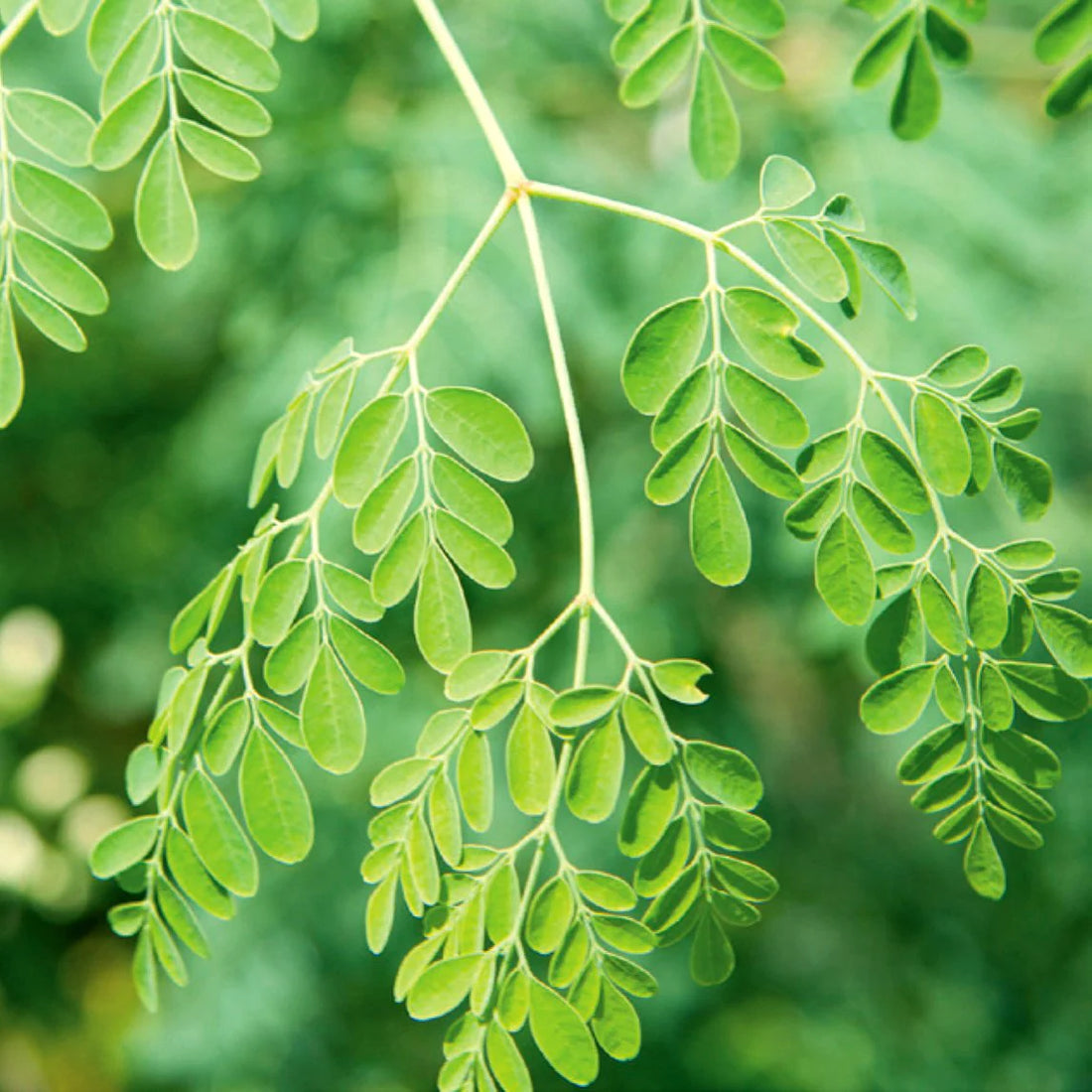In recent years, Moringa Oleifera, often hailed as the "Miracle Tree," has not only captured the attention of the health and wellness industry but has also emerged as a beacon of economic hope for many communities worldwide. The cultivation and trade of Moringa are creating waves of positive change, offering a sustainable and profitable avenue for agricultural and economic development. This article explores the multifaceted economic benefits of Moringa cultivation and trade, shedding light on how this superfood is shaping a prosperous future for farmers, entrepreneurs, and economies at large.
The Rising Demand for Moringa
Global Superfood Trend
Health and Wellness Boom:
The global shift towards health and wellness has significantly elevated the status of Moringa as a superfood. This trend is fueled by a collective move towards natural, nutrient-rich foods that support overall health and well-being. Moringa, with its exceptional nutritional profile, including vitamins, minerals, and antioxidants, meets this demand perfectly, making it a preferred choice among health-conscious consumers.
Diverse Applications:
Moringa's versatility extends its appeal beyond dietary supplements into a wide array of products, including skincare, haircare, and even eco-friendly household items. Its anti-inflammatory and nourishing properties make it a valuable ingredient in beauty and personal care products, while its natural cleansing abilities are utilized in water purification processes, showcasing the plant's multifaceted uses.
Consumer Awareness and Preferences
Educated Consumers:
Today's consumers are more informed and selective about their dietary choices, seeking out products that not only offer health benefits but also align with their ethical values. The awareness of Moringa's health benefits, such as its potential to improve energy levels, enhance immunity, and reduce inflammation, has led to increased consumer interest and demand.
Sustainability Concerns:
The growing emphasis on sustainability has led consumers to favor products that are not only beneficial to their health but also to the environment. Moringa, being a drought-resistant and rapidly growing tree, is viewed as an environmentally friendly crop. Its cultivation supports sustainable farming practices, resonating with eco-conscious consumers who prioritize ethically sourced products.
Economic Impact of Moringa Cultivation
Empowering Small-Scale Farmers
Low Input Costs:
Moringa's adaptability to various climates and its resilience to pests and diseases make it a low-risk and low-maintenance crop for small-scale farmers. This aspect is particularly crucial in developing countries where resources are limited. The minimal requirement for fertilizers, pesticides, and water reduces the cost of cultivation, making Moringa an economically viable option for smallholders.
Increased Income:
The global demand for Moringa has led to higher market prices for its products, offering farmers an opportunity to earn a substantial income from its cultivation. This economic benefit is particularly impactful in impoverished regions, where Moringa cultivation can transform the economic landscape by providing a steady source of income.
Job Creation and Women Empowerment
Agricultural Employment:
The cultivation, harvesting, processing, and marketing of Moringa create numerous employment opportunities within rural communities. These jobs are crucial for economic development in areas where employment options may be limited, contributing significantly to poverty reduction efforts.
Empowering Women:
Moringa cultivation and trade have been instrumental in empowering women, particularly in regions where economic opportunities for women are scarce. By involving women in the Moringa value chain, from cultivation to sales, these initiatives promote gender equality and provide women with financial independence and leadership opportunities. This empowerment has a ripple effect, improving the well-being of families and communities at large.
Boosting Local Economies through Moringa Trade
The trade of Moringa Oleifera, known for its remarkable health benefits and environmental resilience, is becoming a pivotal factor in boosting local economies, especially in regions ideal for its cultivation. This section delves deeper into how Moringa trade is fostering economic growth, enhancing agricultural diversity, and promoting sustainability.
Export Opportunities
Global Market Access:
Countries with climates conducive to Moringa cultivation are uniquely positioned to benefit from the global demand for this superfood. By exporting Moringa products, these countries can earn valuable foreign exchange, bolstering their economies. The international market for Moringa is expanding, driven by its popularity in health and wellness products, offering lucrative opportunities for producers to access broader markets and achieve economic growth.
Diversification of Agriculture:
Moringa cultivation presents an opportunity to diversify agricultural exports beyond traditional cash crops. This diversification is crucial for economic stability, reducing vulnerability to market fluctuations and environmental challenges. By integrating Moringa into their agricultural portfolio, countries can mitigate risks associated with over-reliance on single crops and create a more resilient agricultural sector.
Value Addition and Supply Chain Development
Processing and Manufacturing:
The local processing of Moringa into various products, such as powders, oils, and teas, significantly enhances its market value. This value addition not only increases profitability for farmers and entrepreneurs but also stimulates the development of local industries related to food processing and cosmetics. Establishing processing facilities locally ensures that a larger share of profits remains within the community, contributing to economic development.
Supply Chain Improvements:
Investing in the Moringa supply chain is essential for maintaining competitiveness on the global stage. Enhancements in harvesting techniques, processing methods, and logistics can lead to higher efficiency and product quality. Strengthening the supply chain from farm to market ensures that Moringa products meet international standards, fostering trust and reliability among global consumers and traders.
Sustainability and Environmental Benefits
Eco-Friendly Agriculture
Soil Conservation:
Moringa cultivation plays a significant role in soil conservation and rehabilitation. Its deep root system helps prevent soil erosion, while the leaves, when used as mulch, contribute to soil fertility. This sustainable agricultural practice supports the health of the land, ensuring its productivity for future generations.
Water Efficiency:
The drought-resistant nature of the Moringa tree makes it an ideal crop for arid and semi-arid regions. Its ability to thrive with minimal water inputs reduces the strain on water resources, promoting water conservation. This efficiency is particularly valuable in areas facing water scarcity, allowing for agricultural productivity without depleting precious water supplies.
Carbon Sequestration
Fighting Climate Change:
Moringa trees contribute to the fight against climate change by absorbing carbon dioxide, a greenhouse gas, from the atmosphere. This process of carbon sequestration helps mitigate the effects of climate change, making Moringa cultivation a climate-smart agricultural practice. By integrating Moringa trees into agricultural systems, communities can enhance their environment's resilience to climate change while contributing to global carbon reduction efforts.
The burgeoning Moringa industry, while promising, faces its share of challenges. Addressing these hurdles is crucial for sustaining growth and maximizing the plant's global potential. Concurrently, the future prospects of Moringa cultivation and trade hinge on strategic advancements in research, development, and sustainable practices.
Navigating Market Challenges
Quality Standards:
One of the significant barriers small-scale Moringa producers encounter is adhering to the stringent quality standards set by international markets. These standards ensure product safety and efficacy but require sophisticated equipment and technical know-how, often beyond the reach of local farmers. To bridge this gap, investments in training and infrastructure are essential. Collaborative efforts between governments, NGOs, and private entities can facilitate access to the necessary resources, enabling producers to meet these standards and compete effectively in the global market.
Market Fluctuations:
Like any other agricultural commodity, the Moringa market is susceptible to price volatility influenced by various factors, including weather conditions, global demand, and economic trends. Such fluctuations can significantly impact profitability, making it challenging for producers to predict income and plan investments. Diversifying Moringa products and exploring value-added options can help stabilize income streams. Additionally, establishing cooperative societies can provide a buffer for individual farmers against market unpredictability.
The Road Ahead
Research and Development:
The future growth of the Moringa industry heavily relies on continuous research and development. Expanding the scientific understanding of Moringa's health benefits and exploring new applications in food, cosmetics, and medicine can drive demand and open up new markets. Encouraging partnerships between academic institutions, research organizations, and the Moringa business community is vital for fostering innovation. Such collaborations can lead to the development of new Moringa-based products, enhancing the plant's commercial appeal and health impact.
Sustainable Practices:
Sustainability is at the heart of the Moringa industry's long-term success. Emphasizing eco-friendly cultivation methods, such as organic farming, water conservation techniques, and soil preservation practices, can minimize environmental impact and appeal to the growing segment of eco-conscious consumers. Moreover, adopting fair trade practices ensures that the economic benefits of Moringa trade are equitably distributed among all stakeholders, particularly small-scale farmers and local communities. This ethical approach not only enhances the social impact of the Moringa industry but also strengthens its market position by aligning with consumer values.
Conclusion
The cultivation and trade of Moringa are not just about tapping into a lucrative superfood market; it's about fostering economic growth, sustainability, and empowerment at the grassroots level. As the world continues to embrace natural and nutritious foods, Moringa stands out as a symbol of economic resilience and environmental stewardship. By addressing the challenges and leveraging the opportunities, the Moringa industry can continue to thrive, bringing prosperity and promise to communities around the globe. The story of Moringa is a testament to the power of nature in driving economic and social transformation, making it a true miracle of the modern economy.

